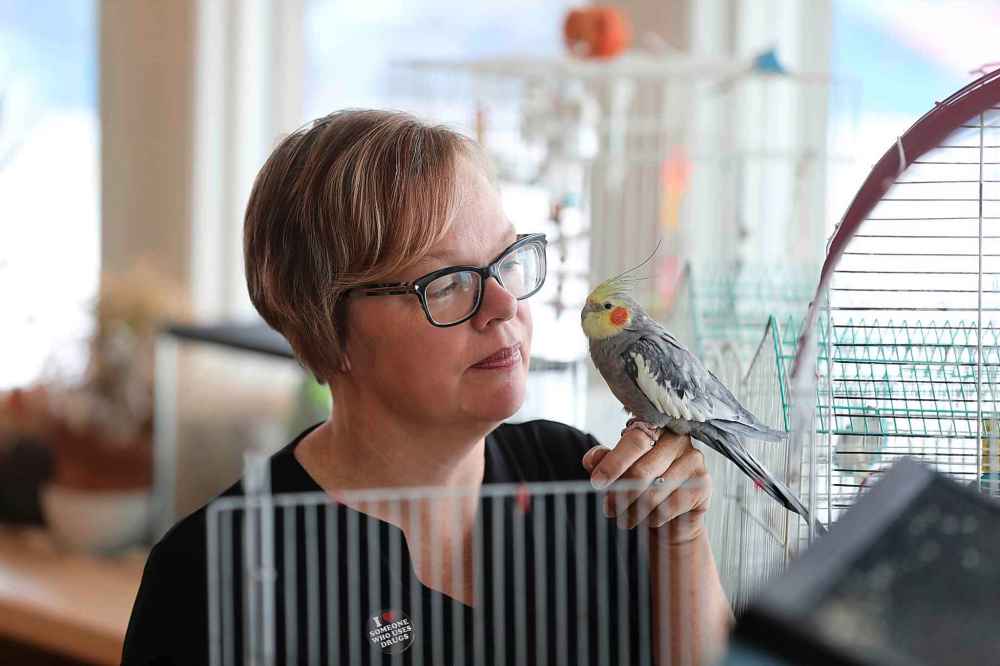Compassion, kindness help stem the meth tide
Advertisement
Read this article for free:
or
Already have an account? Log in here »
To continue reading, please subscribe:
Monthly Digital Subscription
$0 for the first 4 weeks*
- Enjoy unlimited reading on winnipegfreepress.com
- Read the E-Edition, our digital replica newspaper
- Access News Break, our award-winning app
- Play interactive puzzles
*No charge for 4 weeks then price increases to the regular rate of $19.00 plus GST every four weeks. Offer available to new and qualified returning subscribers only. Cancel any time.
Monthly Digital Subscription
$4.75/week*
- Enjoy unlimited reading on winnipegfreepress.com
- Read the E-Edition, our digital replica newspaper
- Access News Break, our award-winning app
- Play interactive puzzles
*Billed as $19 plus GST every four weeks. Cancel any time.
To continue reading, please subscribe:
Add Free Press access to your Brandon Sun subscription for only an additional
$1 for the first 4 weeks*
*Your next subscription payment will increase by $1.00 and you will be charged $16.99 plus GST for four weeks. After four weeks, your payment will increase to $23.99 plus GST every four weeks.
Read unlimited articles for free today:
or
Already have an account? Log in here »
Hey there, time traveller!
This article was published 14/12/2018 (2552 days ago), so information in it may no longer be current.
For almost 50 years, when the Indigenous Family Centre was open, the front door was kept unlocked. A sense of welcome is key to the Selkirk Avenue non-profit, which runs daily drop-ins, healing circles and other programs.
Then meth swept through the neighbourhood. Things started changing. About 18 months ago, a young man maced the building. Last year, a young woman deep into a meth psychosis awoke from a nap and ransacked IFC’s office.
In her nine years at the centre, executive director Michele Visser hasn’t experienced anything like it. She never used to see people under age 25 injecting drugs; in the last two years, she says, needles have become “desperately common.”

Then there was a particularly disturbing incident. One day, she noticed a woman had been in the bathroom for an especially long time. She walked in and found the woman trying to pick meth crystals out of her feces, trying to get high again.
“The level of desperation that would cause a human being to do that is distressing to me,” says Visser, who wears a button that reads “I ♥ Someone Who Uses Drugs” on her lapel.
It’s a Tuesday morning in December and the IFC is calm. Most of the centre’s visitors are transfixed by a game of bingo in the back room; others greet new guests, who now have to be buzzed in via a new intercom system at the front door.
Over the last couple of years, Visser and IFC regulars have become more accustomed to defusing tense situations. A while ago, there was a run-in with a large man who arrived wearing brass knuckles, looking to pick a fight.
Using his name, Visser spoke to him calmly like she would one of her children. She told him he had other options.
“It almost sounds like they’re speaking a different language sometimes,” she says. “You talk to them and they really don’t understand you. And that’s when you have to keep your body so calm and gentle and non-threatening.”
Staff at the IFC rarely call police; the force’s resources are stretched thin, and officers usually don’t show up until hours later. If something serious happens, she’s not expecting help to arrive quickly. Maybe if there was a gun involved, she says.
Instead of hiring a security guard as many have suggested, Visser searched for a community solution. She found one in 65-year-old Connie Budd, from Norway House Cree Nation, who became the IFC’s elder-in-residence last month.
Just having Budd in the room to lend an ear and listen to people discuss their struggles has worked wonders so far, Visser says. In a way, Budd’s calming presence is more helpful than a security guard could ever be.
The elder has felt more than her share of life’s pain. She is a residential school survivor; some of her children and grandchildren have wrestled with addictions. So she understands where people are coming from, when they hurt.
“The sad part of living in the city is you feel like you lost your connection to the community and to your family,” Budd says. “People come and sit down and they start talking. It’s just a matter of having (someone to listen).”
Every day, Budd sets up at a table underneath a bright skylight. She’s often painting or beading — keeping her hands busy, and inviting others to do the same. When their fingers are preoccupied, stories often begin to spill out.

“That’s what I do with my grandchildren. If something’s bothering them, I say, ‘Come on, let’s colour.’ And I bring out some pens, markers,” she says.
This type of connection, Visser believes, is part of what communities need to heal from crystal meth. Policing is “just not the answer,” she says. You can’t police away an addiction; but helping people connect can give them new hope.
“Police might need more resources, I don’t know,” she says. “But people, even when they’re in the throes of a meth addiction or crisis, they don’t need more authoritarianism and jail. They need understanding, love and treatment.”
Now, Visser hopes to see the city move forward on more proactive efforts. On her wish list: a supervised injection site.
“Anyone who’s against safe-injection sites has never found a needle in their bathroom or a needle around their building,” she says.
In a strange way, she says, the stats about the meth surge are reassuring. It means they aren’t imagining the crisis they’ve witnessed at the IFC and elsewhere in the city. Because it’s not only the North End, Visser knows.
She says the problem is hidden better in the suburbs.
“There may be help for you, your parents may be able to pay for something. Your family may step in and get you into treatment,” she says. “But for someone living in poverty, with a vulnerable family, there’s no help.”
jessica.botelho@freepress.mb.camelissa.martin@freepress.mb.cakatie.may@freepress.mb.ca

Katie May is a general-assignment reporter for the Free Press.
Our newsroom depends on a growing audience of readers to power our journalism. If you are not a paid reader, please consider becoming a subscriber.
Our newsroom depends on its audience of readers to power our journalism. Thank you for your support.








